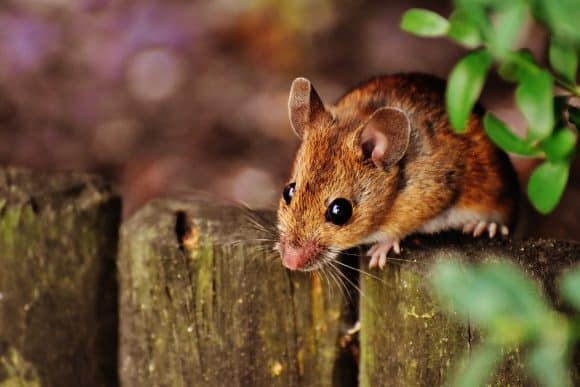Mice can squeeze through openings as small as a quarter-inch and move into your house, eating your food, leaving messy, smelling droppings and urine all over, and spreading disease. They also breed rapidly; a single pregnant mouse sneaking into your house can launch an infestation of thousands of mice. Obviously, rather than dealing with the messy consequence of an infestation, it would be better to prevent them from entering the house in the first place. There are many products and approaches that have been invented; but do any of them really work?
Ultrasound
There are many varieties of devices that emit ultra high frequency sounds that are advertised as being able to drive pests like mice away. The theory is that people and common types of pets, such as dogs and cats, cannot hear these noises but pests can and find them annoying or terrifying, and thus they avoid entering any space emitting these sounds. The devices come in a wide variety of forms, but most consist of a small device that is plugged into an outlet and then it emits ultrasound into the room. Each room and space needs its own device since the sound does not go through walls. Although this method seems convenient and easy, unfortunately, studies have shown mice don’t react to ultrasound at all; mice in cages have been placed right next to ultrasonic pest repellent devices and no effect has ever been noted.
Peppermint oil
Many people have claimed the smell of peppermint can repel mice. Some people even claim planting a few peppermint plants around your house can keep these pests away. However, while it is true mice are repelled by peppermint oil, you need a LOT of it to repel them. Applying sufficient peppermint oil to your house to keep mice out would require huge volumes of it and the resulting smell might drive the humans out of the house as well. Peppermint oil can, however, be applied to small areas to keep mice from making nests in those areas and it can be particularly useful when applied to a small opening where mice have been noted or suspected of entering the house. Make sure you buy pure 100% peppermint essential oil, not products intended for use in cooking. Soak cotton balls with the oil and stuff them in the hole or nest. Remember that the oil will diffuse and thus will need to be replaced approximately every month. Also note that cats can be killed if they come into contact with or breath highly concentrated peppermint oil, so if you have a cat in the house, make sure it cannot enter spaces where you place the oil.
Cat urine
Cats eat mice, and therefore mice should be afraid of and repelled by the smell of cat urine, right? Many people have taken this theory to heart and used soiled cat litter to block entries into the house and to try to drive mice out of specific rooms; you can even buy commercial sprays that contain cat urine that can be used for these purposes. Various studies have shown that cat urine can keep rodents from entering a house, but beware: if mice have already gotten into your house, cat urine can make the infestation worse. Apparently, if a mouse is trapped in an area and exposed to the smell of cat urine, it induces them to breed like crazy-producing many more mice that are now all in your house.
